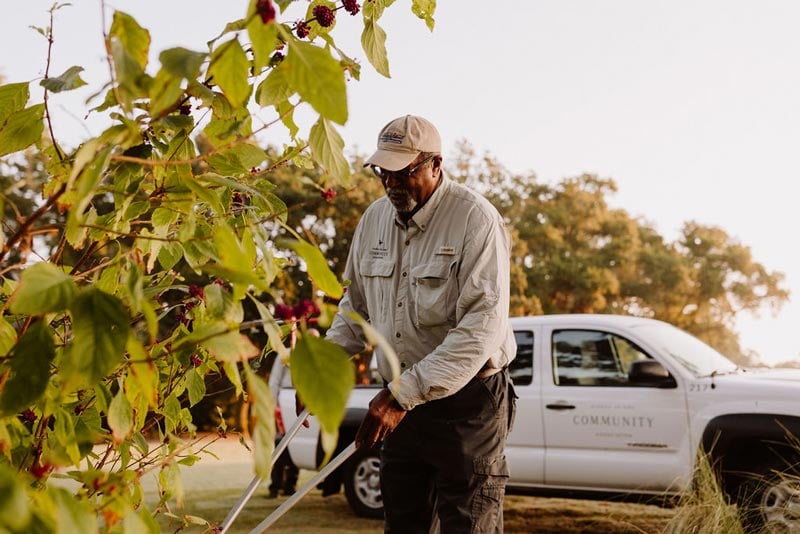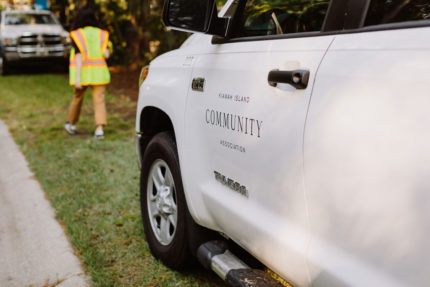Dec
02
2012
From The Blog
Robbie Crawford: Deep Roots and Attention to Detail
Robbie Crawford (pictured above) is an anomaly. The average tenure for the general manager of a private club in the U.S. is about five years. Robbie is the only manager the Kiawah Island Club has had; he will celebrate his 20th anniversary in April. With the new River Course clubhouse scheduled to open in late December, more than two years after the original burned down, Digest talked with Robbie about his career and the club. Robbie’s deep roots in the hospitality industry began with his grandmother’s Italian restaurant in his hometown of Pensacola, Florida. Beginning at age 13, he worked there on weekends. By age 15 he was working in the dining room of a local country club resort and at 19 he became the maître d’. “I worked under an Austrian general manager and chef, so I am European trained. They taught me to have a critical eye for every level of detail,” he said.
Attention to detail and superb service have been his modus operandi at Kiawah. He trains his service staff meticulously. “I would have them stretch a string across the dining room to be sure all the table corners lined up perfectly, and the candlesticks and other items on the tables as well,” he said. “That’s from my European training. Every member or visitor who enters a club facility is greeted first with a smile and then with a warm, ‘Welcome to the Club.’”
Far from being a burden to the club staff, the intensive training and strict standards have engendered an unusual longevity, and staff members praise him highly. The average tenure of Robbie’s staff is 12 years, 10 years longer than the nationwide average. “Hospitality is a rotating business,” he remarked. He also credits developers Buddy Darby, Leonard Long, Pat McKinney and Townsend Clarkson with creating an atmosphere that encourages longevity throughout the Kiawah Partners company. “They treat everyone like family.”
Throughout his college years in Pensacola, Robbie continued to work for the large land development company that owned the resort. He became the food and beverage director, and for four years, he ran all hospitality for the Pensacola Open golf tournament, which was then a PGA tour event. “It was the last tournament of the year and if the race to be the highest earning player was close, all the big name golfers would play,” he recalled. “Wednesday was Pro Am day, and Bob Hope came to play and to do a show for the Retired Officers Foundation at the Naval Air Station. Other entertainment stars followed his lead.”
In Robbie’s subsequent jobs over the next dozen years, primarily in Boca Raton, Florida, he expanded his skills at providing top-notch service for high profile customers. For two of those years he alternated between a seasonal club in the mountains of North Carolina (Elk River in Banner Elk) and south Florida, moving every six months with his wife and son. “Elk River was the type of job you pray for; you work six months and get a year’s salary. The club attracted the Palm Beach people who came for the golf, equestrian and fishing. I was fortunate to move around in my younger years and have wide exposure, but it was hard on my family. The years my son was seven and eight he attended two schools each year,” he said.
After those two nomadic years he returned to Boca to work with The Boca Hotel and Resort when they acquired the Boca Country Club. He was associated with a law firm who he claimed “were the largest legal group representing developers in the late 1980s and early ‘90s.” In 1992, he traveled with them to Charleston as their club management expert to talk with Kiawah Development Partners about starting a club on Kiawah. His expertise was clearly apparent; several weeks later Buddy and Townsend unexpectedly called and asked him to become their club manager.
Between the construction of the club’s first facility, the Beach Club, and the new River Course, the club expanded fourfold. Membership, after the initial offering (the initiation fee for Beach Club membership in 1993 was $5,000), became available only to purchasers of newly released lots or to buyers purchasing a property with a club membership opportunity attached. It has grown from 400 in 1993 to a peak of 1,686 in 2005. Today it stands at 1,630.
The Beach Club facility was followed two years later by the original River Course clubhouse, then the Cassique clubhouse in 2001, the Sasanqua Spa in 2003 and the Sports Pavilion fitness center in 2005. After a year of design and 1.5 years of construction, the new River Course clubhouse is near completion. While the exterior changed little, the interior is completely remodeled. “Everyone will compare the new River Course clubhouse (pictured above) to the old, but it’s hard to compare something built in 1994 to a new building today. The two main differences are the utilization of space, and we’ve captured a better view,” Robbie explained. A wide veranda runs the length of the rear of the building, overlooking the water, and the first floor rooms now showcase sweeping river views. An area for social gatherings, open to the river, where club members can also get a beverage or a meal, replaces the original library. The bar also features river views, and brides and grooms-to-be as well as diners will welcome the new large ballroom with dramatic views that can seat 300. The women’s dressing room has moved downstairs and across the building and has a lounge looking out on the river; the much larger men’s area has moved upstairs above it and sports river-facing showers. Throughout the clubhouse, Robbie’s consummate attention to detail is evident.
Once he relocated to Kiawah, Robbie began to re-grow the roots he had pulled up leaving Florida. He described what made him happy enough to stay 20 years: “I’ve stayed because this is a beautiful place, and because of the Kiawah Partners team. When I first came they let me run the club. I worked 60-80 hour weeks, though I can’t do that anymore–I have reluctantly begun to delegate. Kiawah Partners operates in a true team environment. I have been blessed to sit every week in an organization with a group of such development talent. CEO Buddy Darby is a true visionary, one of the best in the industry. He wants people to speak their minds. Townsend Clarkson knows every aspect of development and hospitality. He’s influenced my life greatly.”
Robbie also appreciates the administrative structure of the club. “A typical club is member owned and members regularly rotate off the board. It’s difficult to keep an operating agenda through different boards.” Instead, Robbie reports directly to Kiawah Partners and has an advisory board of club members. “The board is helpful with developing policies. The original board was instrumental in long and short range planning, and in determining governing policies – for operations, guests, dues, fees and hours.
Robbie’s chief hobby is boating; he keeps a boat on the island. “I have been around water all my life, I take a lot of club members out in the boat and sometimes I fish, or try to. I also play golf; that’s why I bought a boat,” he laughed. “I’m not a good golfer.”

